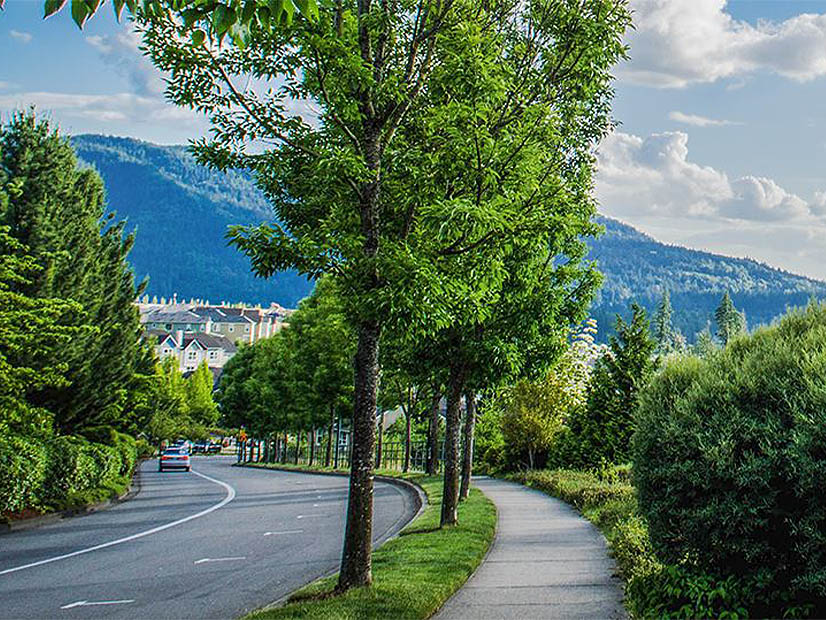
In what backers believe is the biggest deal of its kind, three owners of urban forests in King County, Washington, this month sold more than $1 million in carbon credits to Regen Network Development, a Delaware-based blockchain software company.
Regen’s $1 million purchase of carbon credits ensures that the two of the owners — King County and the city of Issaquah — won’t harvest the carbon-absorbing trees on a 46-acre piece of land. Issaquah is an outer suburb of Seattle in the foothills of the Cascade Mountains. Credits on the Mountains to Sound Greenway Trust land cover an additional 2.6 acres in the northern Seattle suburb of Shoreline.
Regen is collecting carbon credits from King County to offset its contributions to greenhouse gas pollution elsewhere when its overall carbon footprint is calculated.
“Our region is now part of the largest sale of urban forest carbon credits in U.S. history,” King County Executive Dow Constantine said in statement June 3. “We will steward the newly protected urban forests so they can continue to absorb carbon, contribute to cleaner air and water, and create more greenspace where people, families and communities can gather.”
This sale comes in the wake of Washington launching a first-of-its-kind program to auction off carbon offset credits to preserve some of the Washington Department of Natural Resources’ forest land.
DNR duties include managing the state’s trust lands with the mission of producing revenue from property for various programs such as education. The agency routinely auctions off trees on its lands to be harvested for timber.
The new DNR program will set aside 10,000 acres of forests — with trees that began growing prior to 1900 — that have the potential to be harvested. Offset buyers will bid on carbon credits to keep those carbon-absorbing forests intact. This enables the DNR to achieve its mission of producing revenue from its older forests without having to harvest them for timber.
The new state program has identified 2,500 acres on DNR trust lands to be set aside this year in Whatcom, King, Thurston and Grays Harbor counties, stretching from northern to southern Puget Sound. Another 7,500 acres are scheduled to be identified next year.
Many details must still be worked out, including when the credits will be auctioned, what the minimum acceptable bids would be and the overall fundraising targets. The state plans to auction off 917,000 carbon credits in the first 10 years of the program.


